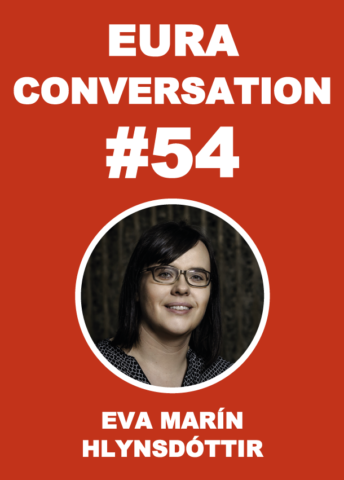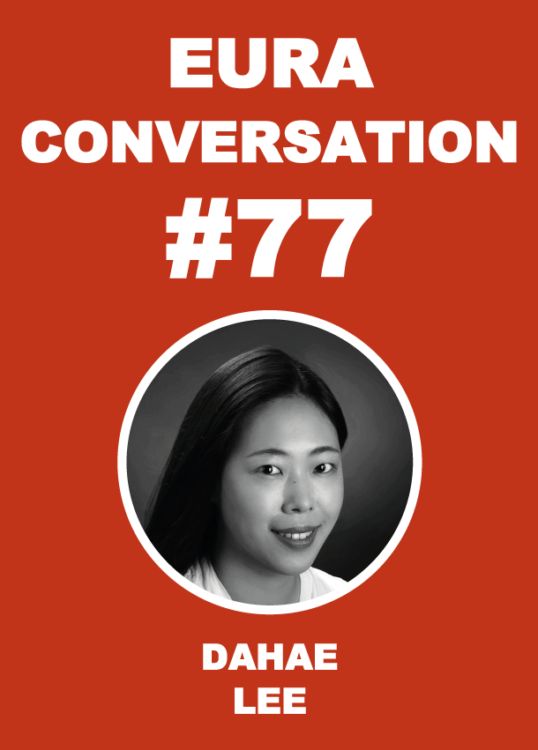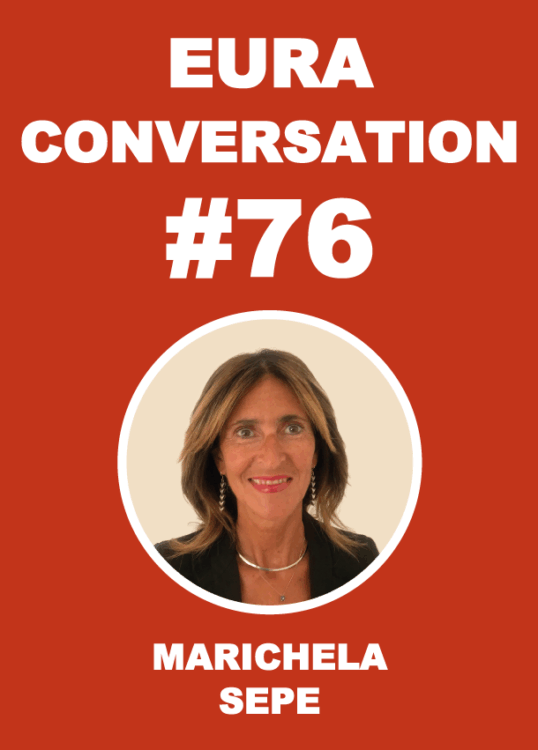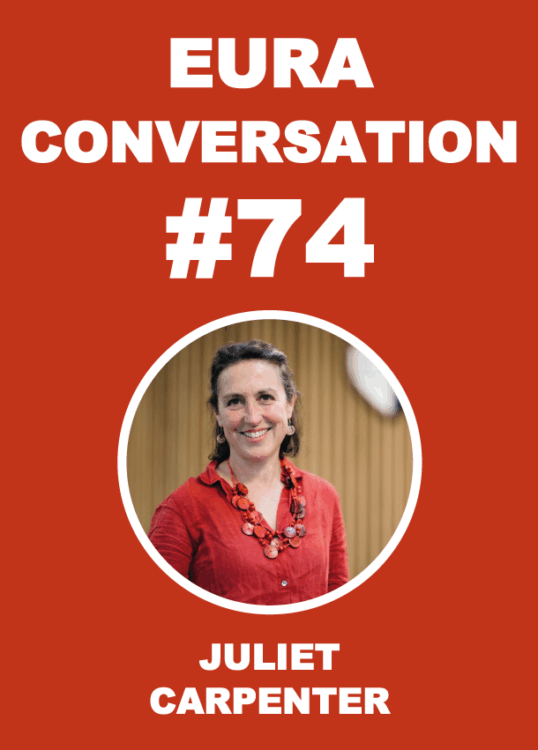
EURA 2023 – Mobile workshops themes
25/05/2023
EURA 2023 – A glance at the event
31/05/2023Conversation #54
The City of Reykjavík as an urban development toolbox.
A glance at EURA2023
by Eva Marín Hlynsdóttir
University of Iceland, Iceland
 This EURA conversation reflects on the upcoming annual EURA conference to be held in Reykjavík, Iceland. The title of the conference is “the European city: A practice of resilience in the face of an uncertain future”. The conference will take place during Midsummer from 22 to 24 June at the University of Iceland campus. The solstice is a time for celebrating life, meeting old friends, and making new ones. In sum it is the perfect moment to observe resilience of people and places. Although rural at heart, Iceland is a highly urbanized country. However, urbanization has happened swiftly, bringing forth problems in relation to the development of the urban fabric, infrastructure and housing, as well environmental challenges. As urbanization is a recent phenomenon in Iceland, there has been a limited scholarship of urban studies. One of the main arguments for taking on the task of hosting the EURA conference was to shed light on the importance of cities and scholarship of cities in a country with little history or tradition of urbanism. We are therefore delighted to announce that the City of Reykjavík is an active partner in the preparation for EURA conference.
This EURA conversation reflects on the upcoming annual EURA conference to be held in Reykjavík, Iceland. The title of the conference is “the European city: A practice of resilience in the face of an uncertain future”. The conference will take place during Midsummer from 22 to 24 June at the University of Iceland campus. The solstice is a time for celebrating life, meeting old friends, and making new ones. In sum it is the perfect moment to observe resilience of people and places. Although rural at heart, Iceland is a highly urbanized country. However, urbanization has happened swiftly, bringing forth problems in relation to the development of the urban fabric, infrastructure and housing, as well environmental challenges. As urbanization is a recent phenomenon in Iceland, there has been a limited scholarship of urban studies. One of the main arguments for taking on the task of hosting the EURA conference was to shed light on the importance of cities and scholarship of cities in a country with little history or tradition of urbanism. We are therefore delighted to announce that the City of Reykjavík is an active partner in the preparation for EURA conference.
In our preparation for the conference, we have focused on balancing academic scholarship with practitioners’ field experience. Doing this we aim to carry on the critical role of the EURA organization in offering a bridge between research and policy by creating a platform for active knowledge exchange between academics and policy makers. Fostering the transfer of good practice in urban research and policy making. The conference is organized in six thematic tracks taking place in nine parallel sessions. The aim of the thematic organization was to create an inclusive as well as transdisciplinary conference and judging from the topics of the abstract submission this aim has been successful.
Track 1 explores the compact inclusive city. Topics submitted to the track include the concept of 15 Minute city, inclusive development, soft planning and the mapping the elements of the compact city.
Track 2 focus on democracy from a broad urban and regional perspective. The track has an unusually broad range of topics with panels exploring local governance, territorial debates, transparency in the urban setting and citizen participation to name but few.
Track 3 explores the city as a social realm, topics include gentrification, housing, urban renewal and rural areas to name but few.
Track 4 explores how emerging technologies are changing and shaping cities and urban life. Topics submitted to the track include smart city development and digital placemaking to name but few.
Track 5 looks at the concept of “crisis” in relation to urban and regional settings. Topics include various angles of the impact of Covid-19 on the urban environment and immigration patterns and crisis to name but few.
Track 6 explores different dimensions of planning, community involvement, governance, and policy instruments for resilient and sustainable cities. Topics submitted to the track include urban resilience and sustainability, green cities and urban climate governance and food self-sufficiency to name but few.
We look forward to exploring these topics and much more in June. A book of abstract will be published on the conference website where anyone interested can explore the latest research within the transdisciplinary discipline of urban studies.
In between our parallel session we have more exciting events. On the more academic end of the spectrum, we invite Matthew Carmona professor of Planning and Urban design from the UK and Tina Saaby the Director of the Danish Town Planning Institute for a conversation on urban design. Our partners from the City of Reykjavík will take us on mobile workshops where we can explore different aspects of the city landscape through concepts such as: sustainability, green energy, smart cities, city and nature, thermal energy, science in the city and the transformation of a young city to name but few. Our second open presentation slot takes place on Friday morning and is reserved for the city expert’s presentation of few real-life cases of urban design in the city of Reykjavík. As an opening social event the City of Reykjavík invites us a reception in the City Hall on Thursday afternoon where the mayor Reykjavík Dagur B. Eggertsson will give us a warm welcome. The annual conference dinner on Friday evening is always a highlight of the conference giving the participants time to relax and enjoy good company.
Although our focus is on the experience of urbanization in Northern Europe and Iceland in particular, we are expecting a global audience of more than 250 participants from 40 countries from all the continents. We are especially pleased to see the high number of young scholars participating in this year’s conference and we especially encourage young scholars to participate in the Emerging Scholar Award by submitting a full paper to the conference. The high number of young scholars at this year’s conference gives us renewed hope that EURA as an of transnational and transdisciplinary association will continue to thrive and the EURA conference is a vital tool in shaping urban scholarship and practice in years to come.







This year’s EURA conference in Reykjavík has high ambitions, expecting to be an urban toolbox exploring ‘practices of resilience in the face of an uncertain future’ – or rather I would say, in face of simultaneous, different, and uncertain but linked urban futures.
The urban world of today reminds us of the importance of being prepared for handling uncertainties and building resilience at the same time. Uncertainties linked to migration, climate change, loss of nature, lack of sustainable energy, new technologies, disproportionate distribution and redistribution of resources, vulnerable governance systems and not least war affect urban communities in many ways. These uncertainties are identified, understood, and handled in different ways depending among other things on interests, local hopes, visions, and problem-solving capacities. I hope the participants of the conference will use the occasion to reframe and redefine these challenges from crisis to being part of normality. This demands alternative research agendas where uncertainties and so-called crisis are not seen as exceptions to the urban normal, but as part of the normal.
An interesting perspective for this year’s conference is the impact of time and scale on urban development. Reykjavik is a young and aspiring city on an ‘island country’ with a small population, not more than a neighbourhood in mega cities. Other places in the world are also experiencing rapid urbanization, either pushed by ambitious planning (The Line), or by a rapidly growing population (the global South), while degrowth is the urban reality in other places (for example the periphery in developed countries), constantly keeping the concept of what is urban and urbanization on the agenda.
One of the most important benefits of the EURA conference is that urban researchers meet in dialogue with practitioners and with each other. Young scholars and seniors, and from various disciplines and corners of the world get the chance to meet, discuss, share experiences on critical urban questions and learn from each other. Collaboration, openness for new empirical research that might inspire discussions of alternative perspectives, as well as questioning the taken for granted urban research concepts, might push the urban research agenda forward. That would be a most successful outcome of the conference!